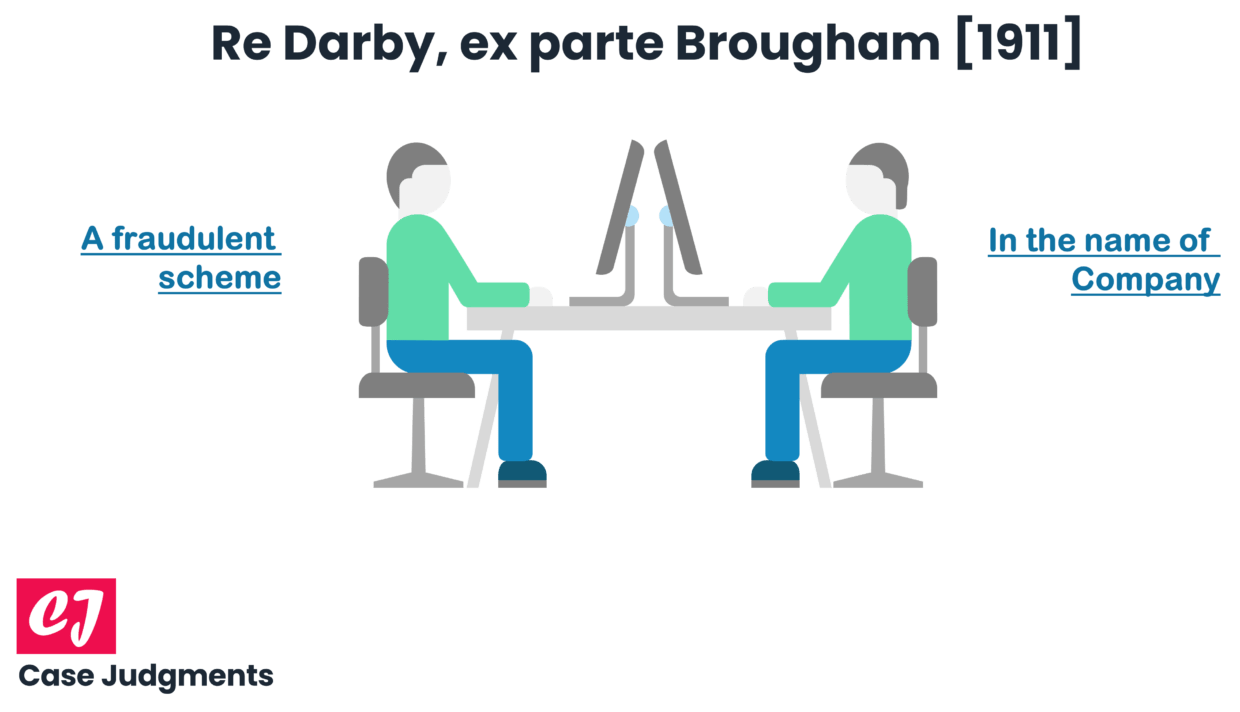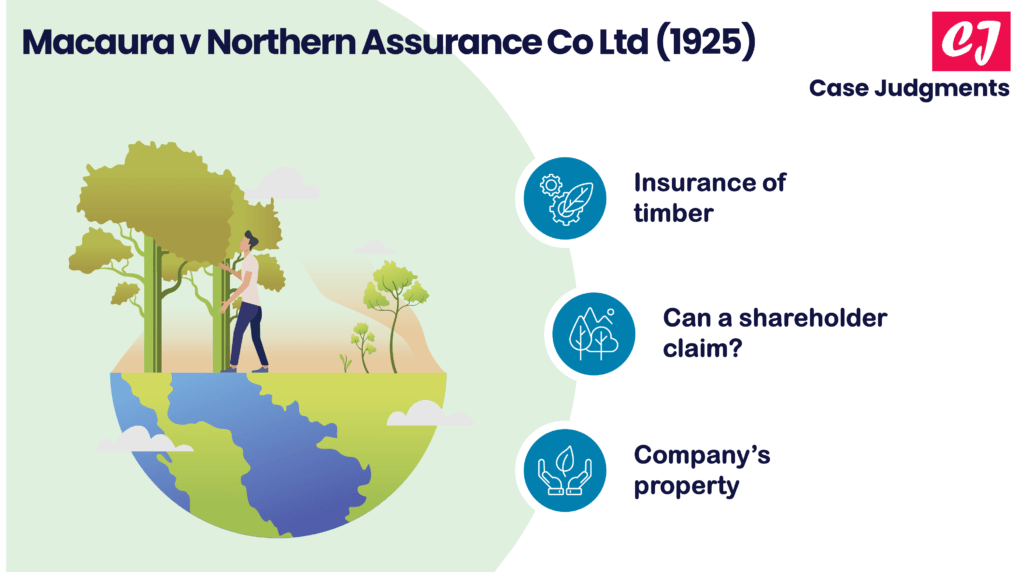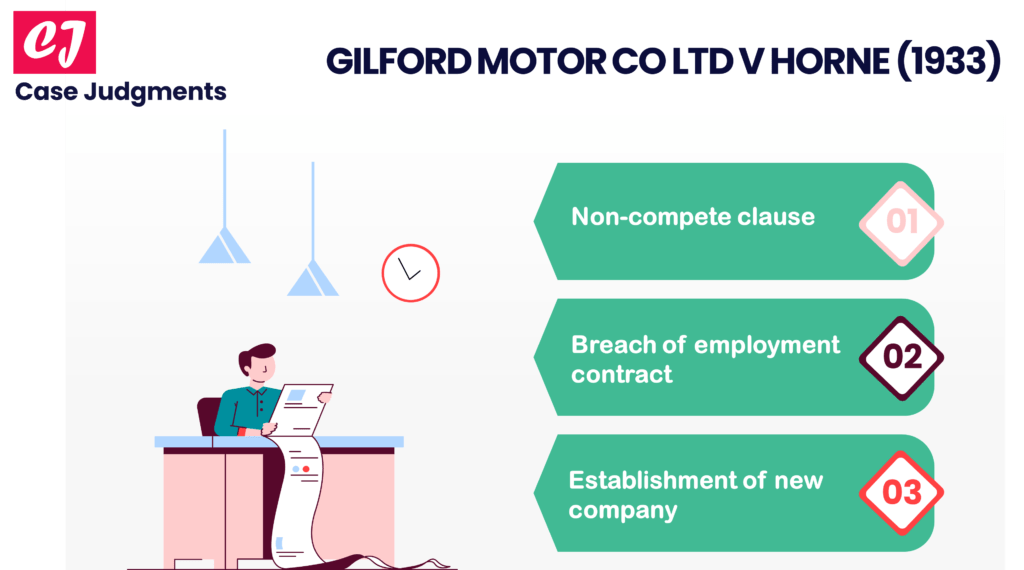
Re Darby, ex parte Brougham (1911): Case Summary
Case name & citation: Re Darby, ex parte Brougham [1911] 1 KB 95
Court and jurisdiction: High Court, UK
Year of the case: 1911
The learned judge: Phillimore J
Area of law: Corporate veil
What is the case about?
This is a UK company law case showing that courts lift the corporate veil where fraud is committed taking the shelter of a company.
Here, two directors had established a company through fraudulent means in order to pocket money that belonged to the general public, and as a result, the courts held those directors responsible for returning all of the money that had been fraudulently obtained.
Facts of the case (Re Darby, ex parte Brougham)
Mr. Gyde and Mr. Darby were fraudsters. They established company A. A then contracted to purchase a license to operate a Welsh slate quarry for a nominal amount of money (£3500). A new company B was formed and A sold (for £18,000) the recently acquired license to B, which was subsequently renamed Welsh Slate Quarries Limited.
The funding that was necessary for B to make this acquisition came from the sale of debentures to subscribers who had been convinced to participate as a result of the representations that had been made by A.
A served in both capacities as the promoter and the vendor for the event. After the funds from the subscribers had been transferred to A, B ran out of money and went into insolvency. This is something that may not come as a surprise perhaps. Later, Gyde and Darby were both found guilty of fraud and were declared bankrupt. The estate of Darby had a considerable amount of assets.
On liquidation of B, the liquidator laid claim to the secret profit that Darby had made while acting as a promoter. Darby expressed his disagreement with the contention that the company “A”, and not he, was the promoter.
Judgment of the Court in Re Darby, ex parte Brougham
Phillimore J rejected the contention. And the liquidator recovered the secret profit that has been fraudulently derived.
Company “A” was merely a name under which Gyde and Darby conducted their business. They had it in their minds to commit a very massive fraud.
Simply put, the company was nothing more than a facade for the two fraudsters who were behind the fraudulent scheme, and the entire series of transactions was a part of it. What they did through the company, they did themselves, and then they pretended that it was something the company did. This is how the fraud was committed.
Summing up the case
This case can be summarised as follows:
Two undischarged bankrupts initiated a company that made hidden profits from the sale of assets that were grossly overvalued to another company that the company promoted.
List of references:
- https://www.lawteacher.net/free-law-essays/company-law/separate-legal-personality.php
- https://www.studocu.com/my/document/multimedia-university/company-law-i/lifting-of-corporate-veil-cases/3233879
- https://scoop-cms.s3.amazonaws.com/5b179b35ca2f3a89238b45a5/documents/prest-v-petrodel-resources.pdf
You might also like:
More from corporate law:

